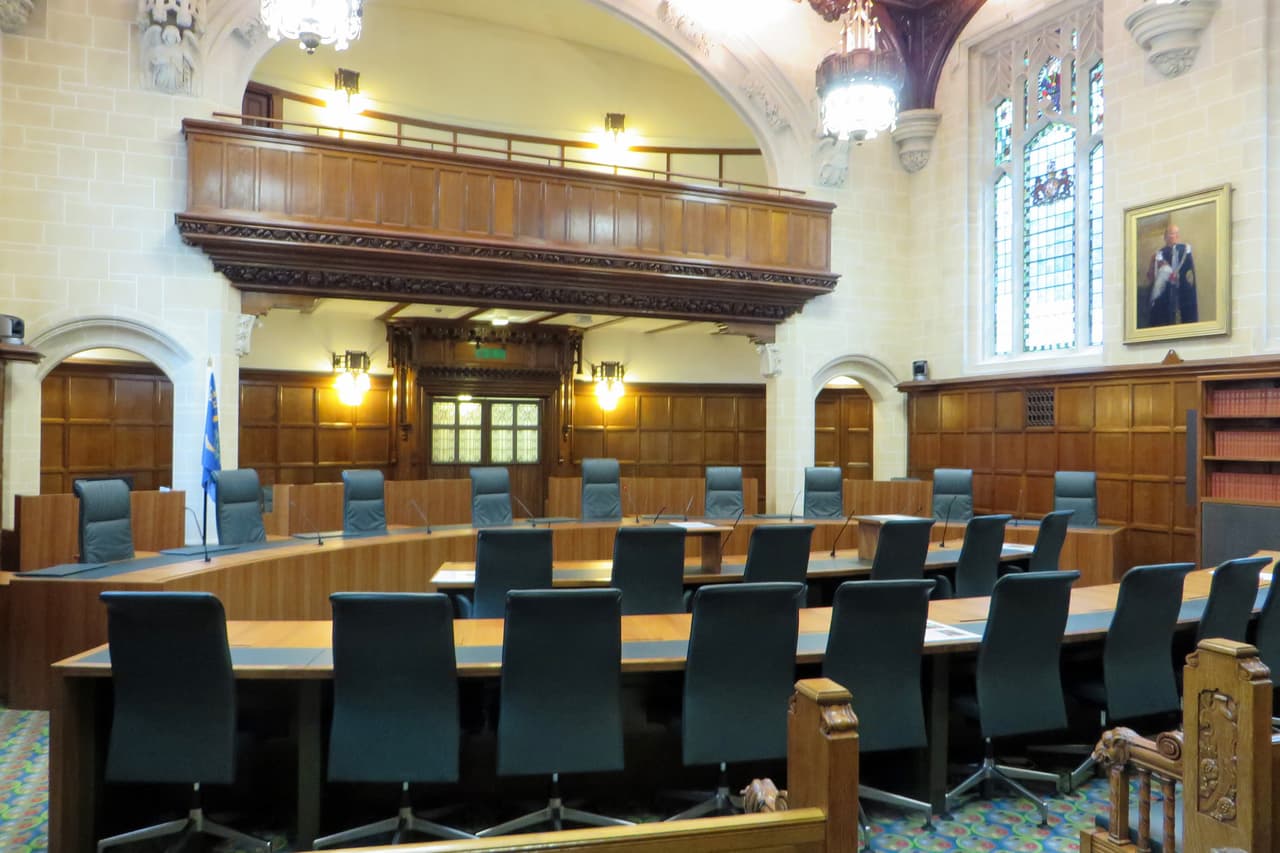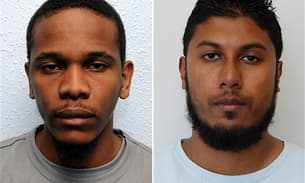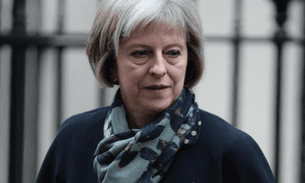
Supreme Court hears second deprivation of citizenship case
UK Supreme Court, Court Number 1 – via Flickr/Diamond Geezer
The second deprivation of citizenship case to reach the Supreme Court, Britain’s uppermost court, finished hearing submissions yesterday.
The appellant argues that the citizenship stripping order made against him by home secretary Theresa May in December 2011 left him unlawfully stateless under British nationality law at that time.
Known throughout his three year legal battle to retain his British citizenship only as B2, he can now be named as Minh Pham. He was born in Vietnam and is also fighting extradition to the US in the divisional courts on grounds of alleged terrorist activities.
Pham’s wife, a British national, and children are currently residing in the UK. In 2011, Pham was being held in immigration custody by UK authorities following a deportation order. He was then arrested after an extradition warrant was issued from the US on charges including “providing material support to, and receiving military training from, al Qaeda in the Arabian Peninsula (AQAP)”.
It is alleged he swore an “oath of allegiance” to AQAP and helped with photography and graphic design for their English language propaganda magazine, Inspire. He previously lived in New Cross, south London, where he ran his own computer company. It is unclear at this point what will happen following both his court cases.
If he is extradited to the US then the rights and protections afforded him by his British citizenship are even more important, suggested his barrister Hugh Southey QC. If he is successful in his fight against the extradition order but loses his case against the deprivation of his British citizenship then the question of whether the Vietnamese government would let him back into the country remains.
In 2011 the Vietnamese government expressly said they do not consider him a Vietnamese national.
“If Vietnam says ‘you’re not a national’ then there is not much he [Pham] can do to change that definition,” said Southey.
It was this argument that won Pham his original appeal in the Special Immigration Appeals Commission (Siac).
However, the home secretary then appealed and won at the Court of Appeal, arguing that while the Vietnamese government did not recognise Pham as a national, under Vietnamese nationality laws he would not have lost the Vietnamese citizenship he was born with when he became a naturalised British citizen at the age of 12.
The case highlights once again the problem of statelessness in cases of citizenship stripping. Until earlier this year the government was only able to remove an individual’s citizenship if they were a dual national – and therefore had another nationality, thus limiting the use of these prerogative powers.
But in July an amendment to the British Nationality Act (BNA) came into force and powers to deprive a person of their citizenship increased “in respect of those who may be involved in fighting, extremist activity or terrorist training overseas”.
There are now three ways in which a person can be deprived of their citizenship: where it would be ‘conducive to the public good’ to deprive the person of their citizenship and to do so would not leave them stateless; where the home secretary is satisfied that citizenship was acquired through naturalisation and obtained fraudulently or by false representation; and on ‘conducive’ grounds where citizenship was acquired through naturalisation and the home secretary has reasonable grounds to believe they could acquire another nationality.
In the last two scenarios, the home secretary can now deprive a person of their citizenship even if to do so would leave them stateless. This is confined to cases where the person has gained British citizenship through naturalisation and where the home secretary deems their conduct is “seriously prejudicial” to the vital interests of Britain.
“The new power will lead to an increase in the number of stateless people and exposes British citizens to the risk of being left stateless”, said Dr Hywel Francis MP in a report issued by the joint committee on human rights in March. “The power does not in itself put the UK in breach of any of its international obligations in relation to statelessness but it does pose the risk of breaching our international obligations to other states”.
EU law and statelessness
Southey said if Pham loses his appeal it is “highly questionable that Vietnam would accept him back”.
The 1954 convention on the status of stateless persons offers a minimum standard of treatment to those without a state. Robin Tam QC, for the home secretary, suggested that if Pham lost then home office guidance on leave to remain as a stateless person could grant him “refugee-like” protection.
The intervenor in the case, the Open Society Justice Initiative, pointed out that EU citizenship would also be deprived from Pham if he lost his British citizenship, so this case could be within the ambit of EU law.
Tim Eicke QC, for the home secretary, said the case could potentially be referred to the European Court of Justice (ECJ) if the case is covered by EU law. But he added that the cases referred to by the Open Society Justice Initiative in support of this argument were not directly relevant to the appellants case. This, he said, was a “fatal flaw” because it did not show that the appellants EU citizenship rights were affected.
Southey said deprivation of British citizenship “plainly does deprive this citizen of their EU citizenship rights”.
Citizenship has previously been described as the “right to have rights”. The UK is a signatory of the 1961 UN convention on the reduction of statelessness.
The first case
Just over a year ago another citizenship stripping case reached the Supreme Court. In October 2013 the home secretary lost a long fight against stripping the citizenship from Iraqi-born al-Jedda. After the court ruled against the government al-Jedda, who fought his case from outside the UK, regained his British citizenship and was able to return to the UK – something he had been trying to do for nine years.
The justices at the Supreme Court unanimously ruled that the decision to strip al-Jedda of his citizenship would illegally make him stateless. However, weeks after the Supreme Court overturned her first attempt Theresa May stripped al-Jedda of his British citizenship for a second time.
This remains the first time that a home secretary has been known to deprive the same person of their citizenship twice. Al-Jedda is now fighting a fresh legal battle in Siac.
Other cases
A Bureau investigation previously found that since 2006, 27 people have lost their citizenship on national security grounds; 24 of these were under the current Coalition government. What has become of many of these individuals is unknown.
The Bureau has identified 18 of the individuals. Pham is one of only two known cases in which the home secretary served a deprivation order whilst they were in the UK. The rest of those identified by the Bureau were abroad, which means a deprivation order effectively prevents them from returning.
Counter terrorism strategy
All the cases the Bureau is aware of were brought before the amendment was made to the BNA, and so British laws at the time meant that the deprivation order was unlawful were it to make the person stateless.
Last week David Cameron unveiled new anti-terror powers which include barring suspected British jihadists from returning for two years or more unless they submit to certain strict measures, taking away the passports of would-be jihadists and preventing planes from landing in the UK unless they share passenger data. These proposals were first outlined in September.
The special exclusion orders will form part of the Counter-Terrorism Bill, which the Government reportedly wants to pass into law early next year. They will be signed off by the home secretary on the basis of “reasonable suspicion” of involvement in terrorist activity. The exclusion order would be served on their last known UK address and their passport cancelled.
Southey said at the Supreme Court that there are an “increasing number of nationality cases floating around Siac”.
Pham’s case could either be sent back to Siac for further consideration or to the ECJ in Luxembourg if it’s ruled to be within the jurisdiction of EU law. Lord Neuberger said that the seven justices would reach a decision “in due course”.
Follow Victoria Parsons on Twitter, and read the Bureau’s Citizenship Revoked investigation here.




